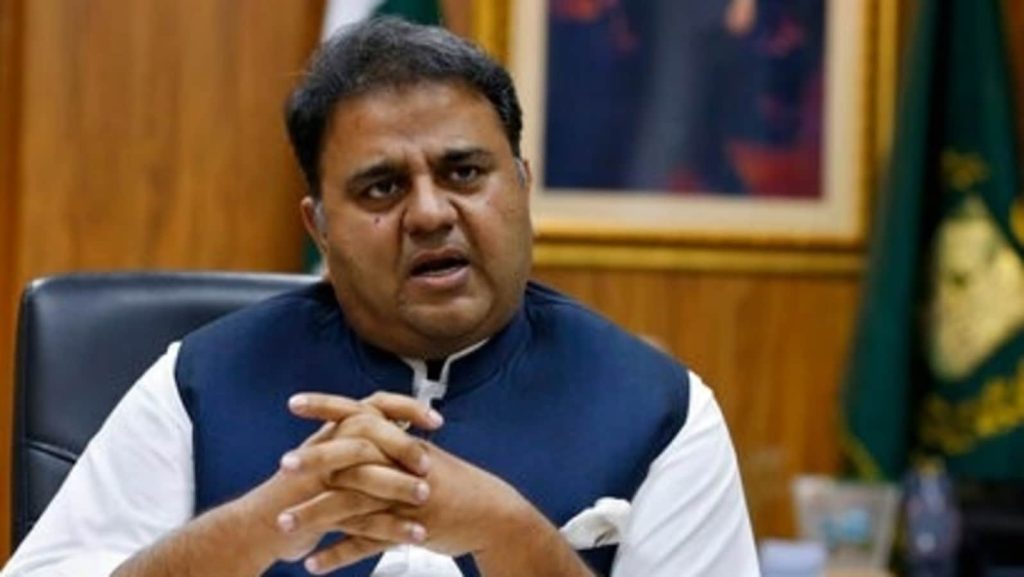ISLAMABAD: Former Federal Minister Fawad Chaudhry discussed Pakistan’s ongoing political instability and the challenges faced by Pakistan Tehreek-e-Insaf (PTI) party on the Khyber News talk show Maraka. Chaudhry highlighted several key issues affecting the country’s political landscape.
Political Instability and General Bajwa’s Extension
Fawad Chaudhry who served in Imran Khan’s cabinet attributed the political instability in Pakistan to General Bajwa’s extension. He explained that Bajwa initially received an extension from the PTI government and later sought another extension from the Pakistan Muslim League-Nawaz (PML-N) government. PTI former leader claimed that this move led to the destabilization of the government and triggered a nationwide crisis. He argued that this situation has contributed to Pakistan’s current major crisis and noted that Imran Khan’s incarceration has become a focal point for both Pakistani and international media.
General Faiz’s Appointment
Addressing rumors about military appointments, Chaudhry clarified that the Pindi Jalsa was unrelated to General Faiz’s appointment. He pointed out that if there had been an issue, President Arif Alvi would have halted the appointment notification, but he did not, leading to the matter being resolved based on seniority. He also mentioned that recent press conferences by DG ISPR differed from previous headlines, notably avoiding topics such as the May 9 incident and digital terrorism.
PTI’s Internal Dynamics and Political Strategy
Chaudhry discussed the challenges facing PTI, including the postponement of a party public meeting at the establishment’s request. He accused the current government of deliberately hindering political normalization, which could threaten their own political standing. He criticized the handling of PTI leadership in Punjab compared to other regions, attributing this disparity to internal party issues.
Role of PTI’s Hidden Leadership and Party Dynamics
He advised that PTI’s hidden leadership should remain undisclosed until the political situation stabilizes. Chaudhry expressed concerns about the takeover of PTI by lawyers, suggesting that this could be detrimental to the party. He admitted that the party’s failure to launch a movement immediately after the election was due to political immaturity and other intervening incidents.
Party Relations and Alliances
Chaudhry noted that while internal conflicts are not unique to PTI, the party is currently more newsworthy due to its issues. He revealed ongoing talks between PTI and both political parties and the establishment, facilitated by Mahmood Achakzai and Chief Minister Ali Amin Gandapur. He welcomed the restoration of dialogue between Nawaz Sharif and Imran Khan, emphasizing the need for unconditional talks.
Potential Alliances and Regional Politics
Discussing potential alliances, Chaudhry suggested that PTI and Jamiat Ulema-e-Islam (JUI) could form a formidable force if they combined their resources, given PTI’s strong presence in Khyber Pakhtunkhwa (KP) and JUI’s organizational strength. He stressed the importance of resolving matters with Maulana Fazlur Rehman and addressing any issues related to NGOs.
Relations with Afghanistan and TTP
Chaudhry reflected on the deteriorated relations with Afghanistan and its impact on the Tehrik-i-Taliban Pakistan (TTP) issue. He noted that the PTI government had maintained good relations with the Afghan government and had hoped for assistance with the TTP issue. However, current relations with Afghanistan are at an all-time low, complicating the situation further.


